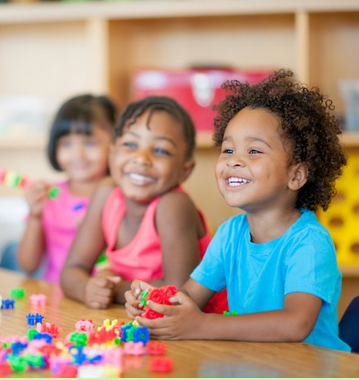 One Florida school is hosting a summer camp that will include reading, math and Bible class. Another is incorporating sports and drama into its offerings. A nonprofit organization will use the arts to help students with reading skills. Meanwhile, field trips, which practically were non-existent during the past school year, are making a comeback.
One Florida school is hosting a summer camp that will include reading, math and Bible class. Another is incorporating sports and drama into its offerings. A nonprofit organization will use the arts to help students with reading skills. Meanwhile, field trips, which practically were non-existent during the past school year, are making a comeback.
It’s all part of an effort to make summer school feel more like summer camp for students who have endured a year of masks, social distancing, and in some cases, learning entirely online and need to make up for lost time.
Though Florida schools, unlike those in many other states, were required to offer in-person instruction five days a week during the 2020-21 school year, COVID still disrupted learning, especially for families who were directly impacted by the pandemic or who lacked Internet access or other resources. Despite that return to brick-and-mortar schools, educators say some students never fully recovered since the sudden pivot to distance learning when the pandemic shuttered campuses statewide in the last quarter of the 2019-20 academic year.
“Some of these kids have lost a year,” said Stacy Angier, principal of Abundant Life Christian Academy in Margate, a small town 15 miles northwest of Fort Lauderdale. The school accepts K-12 state scholarships managed by Step Up For Students, which hosts this blog.
The school plans to offer three weeks of tutoring infused with fun. The first half of the day will include reading, math, and science “skill sharpeners.” During the afternoons, the students will get to choose among three tracks: sports such as flag football, basketball, or volleyball; arts such as drama, dance and music, and artistry that includes baking, knitting crocheting and crafts. Field trips will round out the summer experience.
At Tampa Bay Christian School, the SummerFUN program isn’t limited to students who attend the school. The state’s Reading Scholarship Program will allow district school students to attend if they have unused funds to apply. In addition to academics, the program will offer STEM, sports, and drama.
Theater also will take center stage at a summer program sponsored by the Central Florida Urban League and Central Florida Community Arts. The program, which was also offered after school and during spring break, helps students hone their reading skills by allowing them to write and design their own story.
“Specifically, this program will meet Florida Department of Education standards that ensure student achievement in particular grades and subjects, achievement growth on Florida Assessments and closing the achievement gap, all while boosting the reading and writing comprehension, knowledge, and confidence of our youth,” according to a statement on the league’s website.
Students who are approved for Reading Scholarships also can apply their funds toward 10 hours of extra tutoring.
“The idea is to help students avoid the summer back slide that inevitably happens annually, but we know that will be greater this year with all of the adaptations that needed to be made by schools and the virtual learning that students experienced this school year,” said Rebekah Lugo-Melise, senior manager of arts equity and access for Central Florida Community Arts.
This is the group’s second year partnering with the Urban League. It promises to be bigger and better with a playwriting theme, Lugo-Melise said.
“The goal for the students this year as we work with them is for each of them to write their own plays and design the costumes that would be used if the play were produced,” she said.
The community arts group is also planning supplementary materials that will play into the themes that the Urban League has established for the camp, with students creating newspapers in which they will promote their plays.
“They will get to do some acting, some drama exercises, and a myriad of other activities to expose them to the arts and to encourage engagement in their learning,” Lugo-Melise said.
Experts say that while it’s always important to make summer learning engaging, this year is more critical because of the learning losses and because the long-term stakes are high. A report by the Federal Reserve Bank of San Francisco recently estimated that pandemic-related learning disruptions will reduce the size of the economy over the next 70 years.
“Now, our country is heading into the most important summer for education in America perhaps since World War II,” Jenni Torres, vice president for curriculum for early education at Waterford.org, wrote in an opinion piece for The 74. “Due to COVID-19, the system is due for an overhaul to meet the new, long-term educational normal — and it needs to be done by the fall.”



Thus, we can conclude that for those who, in this situation, found themselves in ideal conditions close to laboratory ones, distance learning may not become any significant problem at all, or it may even be useful.